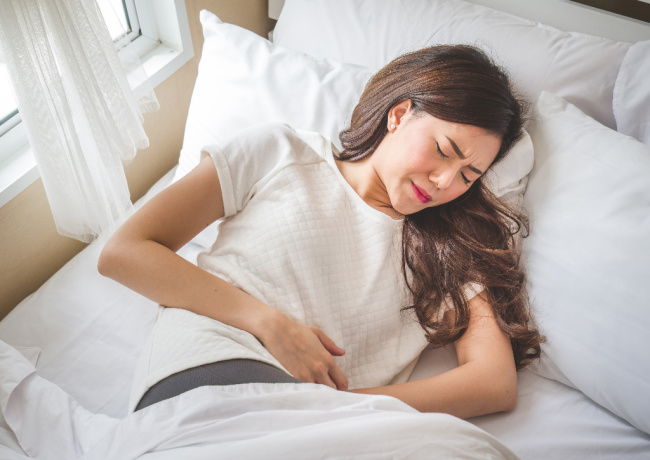
How can women with endometriosis thrive sexually?

Affecting about 200 million women worldwide, endometriosis occurs when endometriotic tissue (which typically lines the inside of the uterus) grows outside the uterus. This tissue might be found on the ovaries, fallopian tubes, bladder, rectum, or intestines. It can also appear on the peritoneum, (the membrane that lines the abdominal cavity), and can even affect the thoracic cavity (namely the lungs and diaphragm).
Women with endometriosis experience chronic pelvic pain, which usually worsen before and during menstrual periods. Sexual pain is particularly common.
Depending on the severity, endometriosis might be treated with medications or surgery.
Endometriosis can affect a woman’s sexuality in many ways:
- Pain. Sexual pain from endometriosis varies from mild to severe. Pain is most common with deep penetration and often remains present after intercourse, from a few hours to a couple of days. The anticipation of pain can make a woman tense her pelvic floor muscles, adding to a cycle of pain. As a result, she may avoid intercourse.
- Emotional issues. Feelings of inadequacy are common in women with endometriosis. They may feel guilty, frustrated, or depressed because of sexual difficulties.
- Relationship issues. Some women avoid sex because of the pain, and partners may feel rejected. This could affect the relationship and make couples drift apart and stop being intimate.
- Desire issues. Chronic pelvic pain, even when it is not sexual, can impact sexual desire.
- Other sexual issues. Taken together, the above issues can contribute to less sexual desire, arousal, orgasm and satisfaction.
Fortunately, women with endometriosis can still have satisfying sex.
- Seek endometriosis treatment. Whether surgical or hormonal, treatment can reduce sexual pain and make a difference.
- Redefine what it means to have sex. If penetration is painful, there are plenty of other ways to be intimate without penetrative intercourse. Couples might try oral sex, kissing, touching, using sex toys, or role playing. Together, they can make pleasure the goal.
- Try different positions. A woman may have more pain with deep penetration, so a position that gives her more control might help. Couples may need to experiment before they find what works best for them.
- Use a lubricant. A lubricant can make penetration more comfortable.
- Consider your menstrual cycle. Many women with endometriosis find it helpful to plan sex around their menstrual periods. When hormone levels fluctuate, endometriotic tissue can become more inflamed and irritated. As a result, sex may be more painful before and during a woman’s period.
- Communicate. Communication is important in and out of the bedroom. During intimacy, women can tell their partner when something is painful or when something feels good. But good communication is essential on the relationship level as well. Women may worry about not pleasing their partner and feel inadequate or insecure. Partners may feel rejected and not understand a woman’s pain and fear. By talking over the situation, couples can reassure each other and commit to working as a team.
- Try relaxation techniques. Mindfulness, meditation, yoga, and breathing exercises can help.
- Counseling or sex therapy. A qualified therapist can teach coping and communication strategies as well as provide more education about endometriosis. Support groups, where women share their experiences with endometriosis, may also help.
Resources
- Endometriosis Foundation of America - “How to Navigate Sex with Endometriosis”
Hurley, Ellie
(May 12, 2020)
https://www.endofound.org/how-to-navigate-sex-with-endometriosis - “What is Endometriosis?”
https://www.endofound.org/endometriosis - EverydayHealth.com - “What to Do When Sex Hurts With Endometriosis”
Canter, Julie Davis
(Last updated: January 16, 2018)
https://www.everydayhealth.com/womens-health/why-sex-hurts-with-endometriosis.aspx - WebMD - “Endometriosis and Intimacy”
(Last reviewed: January 11, 2021)
https://www.webmd.com/women/endometriosis/endometriosis-intimacy



